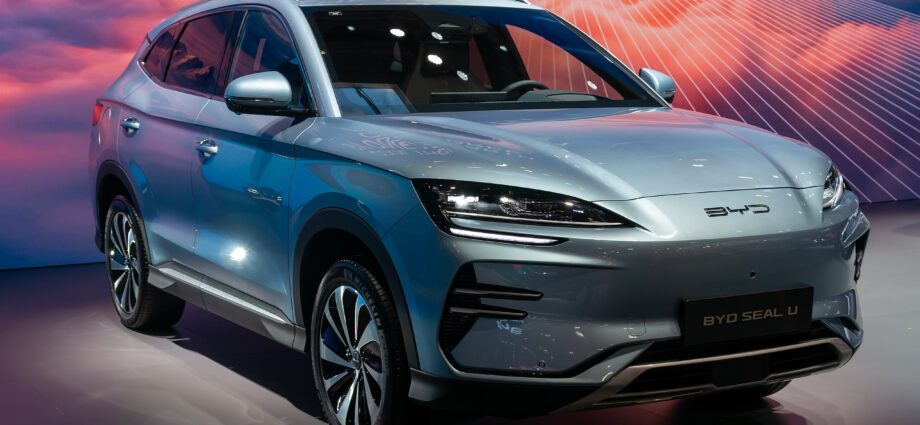
A little-knwown giant, China’s BYD is set to become the world’s top electric vehicle manufacturer, marking a significant shift in the industry dynamics
by Matt Davies
December 28, 2023
In the realm of electric vehicles (EVs), China’s BYD is positioned to overtake Tesla in global sales this quarter.
The ascent of BYD (as well as SAIC Motor) symbolizes China’s increasing influence in the international automotive arena, challenging traditional giants like Toyota, Volkswagen, and General Motors. The country is now competing with Japan for the lead in global passenger car exports.
Notably, in October 2023, 1.3 of the 3.6 million vehicles shipped from China were electric.
“The competitive landscape of the auto industry has changed. It’s no longer about the size and legacy of auto companies,” Head of China operations for hedge fund Snow Bull Capital Bridget McCarthy said, “it’s about the speed at which they can innovate and iterate.”
“BYD began preparing long ago to be able to do this faster than anyone thought possible, and now the rest of the industry has to race to catch up,” McCarthy added.
Indeed, BYD’s journey began in 2003, when it acquired a struggling state-owned automaker. In 2008, the company introduced its first plug-in hybrid, the F3DM.
Government support for plug-in car purchases, ranging from tax breaks to production incentives, played a pivotal role, benefiting BYD. Unlike most carmakers, BYD makes its own batteries.
Paul Gong, UBS Group AG’s head of China autos research, attributes China’s remarkable EV growth not just to government subsidies but also to intense competition. Gong emphasizes that Chinese manufacturers must focus on innovation, consumer preferences, and cost optimization to thrive in this highly competitive market.
According to UBS’s analysis, a BYD Seal sedan has a 25% cost advantage over legacy competitors, and Chinese automakers “are likely” to own a third of the global car market by 2030.
Despite BYD’s relative obscurity outside China, Warren Buffett’s 2008 investment of $230 million for a nearly 10% stake in the company speaks volumes. By last year, the value of Buffett’s stake had multiplied about 35 times to reach around $8 billion.
While BYD is yet to match Tesla’s revenue, income, and market capitalization, analysts anticipate significant convergence in these metrics next year. Bernstein’s projections suggest Tesla’s $114 billion in sales may closely rival BYD’s projected $112 billion, signaling a narrowing gap between the two automotive powerhouses.
“How a car company performs will depend on its tech and response,” Wang Chuanfu, BYD founder, told Bloomberg in March. “BYD in China’s electrification is the winner for now, but how it will go tomorrow, we can’t say for sure. But we will lean into our advantages and keep making good products.”
Subscribe to our newsletter.
This article was originally published on IMPAKTER. Read the original article.


